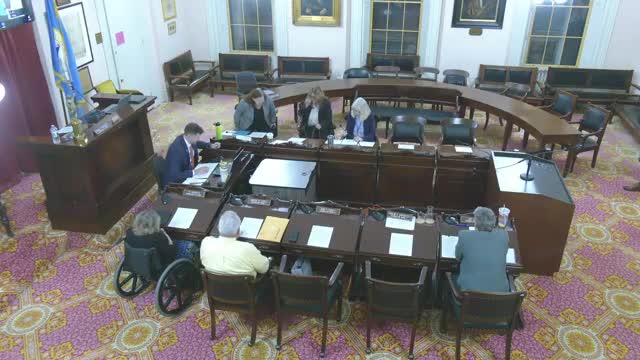Committee debates raising retail marijuana license cap to add social equity applicants; leaves matter in committee
Get AI-powered insights, summaries, and transcripts
Subscribe
Summary
Salem City committee discussed an ordinance and zoning change to increase the cap on retail marijuana establishments from five to allow three additional licenses, with a proposed preference for social equity and economic empowerment applicants; the committee voted to keep the matter in committee pending zoning and planning board action.
The Salem City Council Committee of the Whole — Ordinances, Licenses & Legal Affairs discussed Oct. 23, 2025 a proposed amendment to the city’s ordinances and zoning code to increase the cap on retail marijuana establishments.
City solicitor Beth Renard described the change as an adjustment to the existing cap, which currently limits retail marijuana establishments to five, and explained the proposal would allow up to three additional licenses to be issued, with priority given to social equity program participants and economic empowerment priority applicants certified by the Cannabis Control Commission. Renard noted the Code of Massachusetts Regulations requires a preference for social equity participants if new retail licenses are added.
Mayor Pengalo said the city assesses a 3% local excise on cannabis sales and provided recent excise collections: “In FY ’24, we received $850,000 in that excise. In FY ’25, that dropped by 19% to $690,000,” and warned the market appears to be saturating. The mayor said additional licenses would generate potential excise revenue and support jobs and commercial property growth, but he did not frame revenue as the primary motivator.
Councilors discussed how many of the new licenses would be reserved for social equity applicants. The proposed draft would reserve two of the additional licenses for social equity participants; committee members noted the percentage reserved comes from the applicable state regulation and would amount to roughly a 25% reservation once the three new licenses are added to the current five.
Renard explained the new regulations offer two main options for a municipality issuing new licenses: either make newly issued licenses for a given period (for example, the next three years) all reserved for social equity applicants, or adopt a 1-to-1 policy where new licenses are issued one social-equity, one non–social-equity. She told the committee the 1-to-1 approach appeared to be the most advantageous to diversify the field in Salem.
Councilor Jerzlow asked about enforcement costs and excise revenue; the mayor provided the excise figures above and noted overall excise receipts have declined from FY ’24 to FY ’25. Committee members asked how license vacancies would be handled; Renard said vacancies would be processed on a 1-to-1 basis under the proposed policy, meaning one social equity award for each non–social-equity award in the short term, but she clarified that did not prevent a second license from later being awarded to an equity applicant.
Several committee members and the solicitor emphasized that a separate zoning ordinance change is required before licenses could be issued to new locations. The committee discussed timing and whether to report a positive recommendation to the full council now or wait until the planning board completes a joint public hearing on the zoning change. After discussion the committee voted to keep the ordinance change in committee so the zoning matter could proceed through planning and public hearing processes; the committee noted it could report out with a positive recommendation after the zoning action if appropriate.
